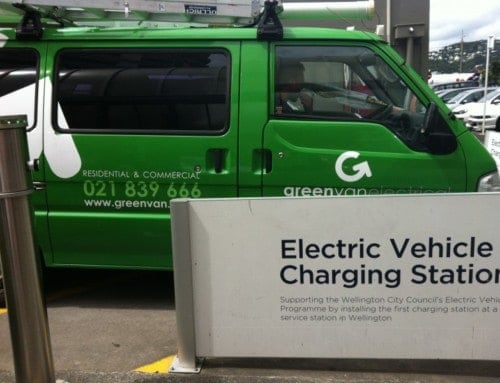There is huge potential for electric vehicles in New Zealand because of our vast renewable energy sources. From a sustainability perspective, this is quite important, as it could offer a way to reduce our carbon emissions. Transport consumes the most energy in New Zealand. In fact, over a third of all energy consumption in the country comes from the transport sector. This is the second largest contributor to greenhouse gas emissions after agriculture
Most of the electricity generation in New Zealand (over 70%) comes from renewable sources such as hydro, geothermal and wind. Compared to other countries, this percentage of generation is high. For example, in the UK, only 7% of the electricity generated comes from renewable sources, 76% of their electricity generation comes from burning fossil fuels such as gas and coal. That means that electric vehicles driven here contribute less to emissions compared to electric vehicles in other countries where they generate electricity from non-renewable sources.
Being ‘green’ is not the only reason people choose electric cars however, especially for people who are early adopters. Low running costs and maintenance are one of the main draws of electric vehicles. There are also a group of technologically savvy hands-on Kiwis who thrive on the challenge of converting their own traditional petrol or diesel powered cars into electric vehicles. Some also do it as a way to show others the possibility of back-yard tinkering. There are quite a few conversions of this kind that have taken place in New Zealand over the last few years.
Micro electric vehicles, such as electric bikes, are also becoming more commonplace. In fact, one business sold over 1000 micro electric vehicles last year and they expect sales to increase this year. Electric bikes have all the benefits of a traditional bicycle, such as exercise and fast travel within cities but they also help climb hills and overcome headwinds while being cheap and efficient to run. This option fits with an outdoor lifestyle that some people enjoy.
Prices for electric cars are also dropping and this may make them more attractive to buyers. But other issues are also important for buyers, such as the current charging infrastructure. For urban commuting, the range an electric vehicle can travel without charging is sufficient. However, weekend range anxiety can set in for longer trips away. More charging stations around the country would relieve these worries. For people that already have or are considering installing solar panels on their homes, charging from sunshine gives them the feel good factor of having their car powered solely from renewable energy. Greater governmental incentives, such as tax breaks, public charging facilities or purchase incentives could encourage greater uptake of electric vehicles.
Interestingly, when people do buy or convert to an electric vehicle, their travel behaviour tends to change. They plan their trips in terms of getting more done in a single trip and therefore reduce their overall trips made. They also tend to drive more smoothly and efficiently because they are more aware of the energy they are using. This suggests that choosing an electric vehicle is part of shift in their overall energy culture.
New Zealand has the potential to be a leader in terms of reducing transport carbon emissions because of the high percentage of electricity produced from renewable sources. To fulfil this potential, New Zealand could provide better charging infrastructure and greater financial incentives to increase the uptake of electric vehicles.
Let me know what you think and post a comment below.
Dr Michelle Scott
Michelle.Scott@otago.ac.nz






Great cover of the issues here. When I read that Minister Simon Bridges has spent $200, 000 per year wining and dining Fossil Fuel executives, to entice them to explore for fossil fuels in and around NZ, I feel like despairing, as imagine the peanuts of that 200k subsidy to the fossil fuel industry (on top of all the other subsidies given to fossil fuels) being applied here…
There are a whole host of small but stalling challenges being faced by all those who wish to move to electric forms of motive power: new imperfect technology; lack of infrastructure; free market (fossil fuel market); cost; fear of the new; etc. But if we invested just a little in supporting the technology and some basic infrastructure, the cost would go down, the visibility up and the transition would be underway.
We can cry into our milk all we like and it won’t change the government’s approach. What we can do is share information more, build up our understanding and our knowledge and experience of these new forms and learn from research through greater collaboration between community, business and researchers, in the absence of government leadership. Thank you for being so clear about our potential to change here. I think we need to keep on saying just how relatively simple it would be for NZ, if we chose to go this way, and that message will support all those who are actually doing it, and encourage more people.
Hi Michelle
Thanks for your article. How far do you think the price of electric vehicles will come down over the next few years? There seems to be a real growing interest in them but the cost is still quite high and second hand ones are not yet common.
Thanks
Maureen